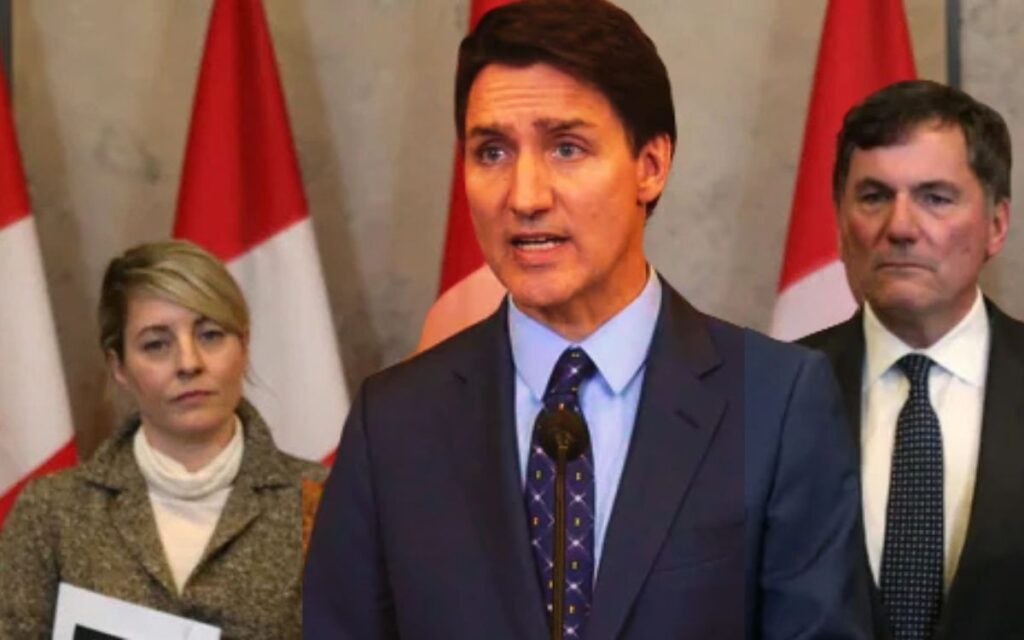Diplomatic ties between India and Canada have plummeted to unprecedented levels following the expulsion of their top diplomats, raising concerns for Indians traveling to Canada. As the two countries face escalating tensions over the assassination of Sikh separatist leader Hardeep Singh Nijjar, questions arise about the safety of Indian nationals in Canada.

Recent developments mark a new low in the historically cordial relationship, leaving many wondering how this political turmoil could affect their travel plans and safety.
Current Climate for Indians in Canada
Historically, Canada has been seen as a welcoming destination for Indians, with over 1.8 million people of Indian origin living in the country, including a large number of students and professionals. However, the current tensions have led to a rise in concerns about the safety of Indian nationals, particularly those who may be linked to or mistaken for supporters of the Indian government.
Despite the diplomatic fallout, there have been no reports of widespread violence or targeted attacks on Indians in Canada.
The Canadian government, including the Royal Canadian Mounted Police (RCMP), has stated that while there are “over a dozen credible and imminent threats to life” aimed at pro-Khalistan activists, the general Indian community remains safe. Trudeau’s government has emphasized that the threats are specific to the pro-Khalistan movement and do not extend to the broader Indian population.
However, with public statements from both countries intensifying the rhetoric, there remains an air of uncertainty. Canadian police have claimed that Indian agents were involved in other criminal activities, including “homicides, extortion, and violent acts” targeting pro-Khalistan supporters. India has dismissed these allegations as “preposterous” and accused Canada of being influenced by separatist campaigners.
Historical Tensions Between India and Canada
This is not the first time relations between the two countries have been strained. In 1974, India shocked the world by detonating a nuclear device, leading to outrage from Canada, which accused India of misusing plutonium from a Canadian reactor meant for peaceful purposes. Canada responded by suspending its support for India’s atomic energy program, leading to a significant cooling of relations.
However, none of the previous disagreements reached the current level of open confrontation, where both countries have expelled top diplomats and publicly accused each other of serious crimes. According to Michael Kugelman of the Wilson Center, this is a moment when the relationship between the two nations has “hit rock bottom.”
Also Read: How many Tampa bay lightning players are Canadian?
Impact on Indian Travelers and Students
For Indian students, who constitute a significant portion of international students in Canada, the current tensions may raise concerns, but there has been no official indication of safety risks directly affecting them. The Indian Ministry of External Affairs has not issued any formal advisories against travel to Canada, and visa services, which were temporarily suspended by India, have resumed since October 2023.
Nevertheless, the current situation remains fluid, and Indian nationals are advised to stay updated on the evolving diplomatic crisis. While the tension is predominantly at the governmental level, the possibility of isolated incidents or protests related to the political situation cannot be ruled out. In light of these tensions, Indian travelers are encouraged to remain cautious and vigilant, especially if attending political or religious events linked to the Khalistan issue.
Final Words
As the situation stands, going to Canada remains relatively safe for Indian travelers, but the deteriorating diplomatic ties have undoubtedly created a sense of unease. Indian nationals should remain aware of the ongoing developments and exercise caution, especially in areas where political protests or unrest might occur. For now, there is no immediate danger for Indians traveling to Canada, but the strained relations between the two countries could lead to further complications if the situation escalates.
In the end, while the governments of India and Canada continue their political standoff, the everyday lives of Indian nationals in Canada, including students and professionals, remain largely unaffected. However, travelers should monitor the news closely and stay informed to ensure their safety during these unpredictable times.
Shally Watson is a seasoned News Writer with over 12 years of experience in the dynamic world of journalism. Her impressive career has seen her work with some of the top news agencies in the industry, where she has consistently demonstrated her exceptional talent for crafting compelling news stories that captivate readers worldwide.